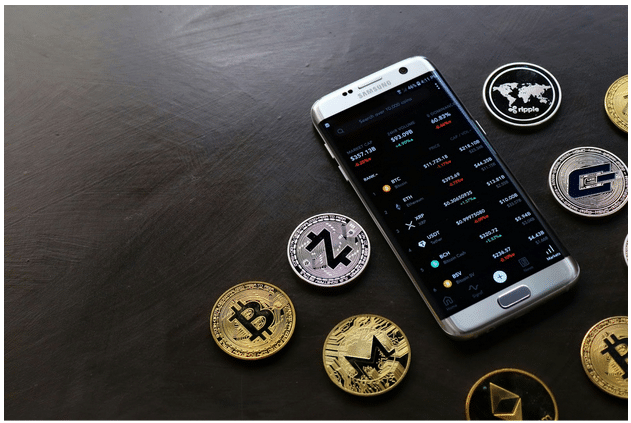- Binance monitors Monero, Zcash and Firo, highlighting regulatory challenges and threats of delisting in privacy cryptocurrencies.
- Following Binance’s announcement, FIRO falls 21.3%, while XMR shows volatility.
Privacy has become an issue of concern within today’s financial sector, and recently, major privacy-focused cryptocurrencies have experienced significant upheaval. Binance, a leading exchange platform, has announced the inclusion of Monero (XMR), Zcash (ZEC) and Firo (FIRO) on its watch list for possible delisting.
The move, driven by regulatory concerns and volatility, reflects the growing pressure on trading platforms offering privacy-focused cryptocurrencies.
The Regulatory Scenario
The recent inclusion of Monero (XMR), Zcash (ZEC) and Firo (FIRO) on Binance’s watch list highlights the challenges facing the cryptocurrency world amid a constantly evolving regulatory environment. Tighter regulations, especially regarding money laundering and terrorist financing, have subjected exchange platforms to closer scrutiny.
Binance has assigned a monitoring label to these cryptocurrencies, which involves periodic risk assessments every 90 days to maintain their eligibility for trading. These assessments are vital to ensure that crypto projects meet key criteria, such as team commitment, transaction volume, blockchain security and liquidity.
What are Privacy Cryptocurrencies and What are the Concerns?
Privacy-focused cryptocurrencies , such as Monero and Zcash, employ sophisticated cryptographic techniques to keep transaction details and user identities secret. Their main purpose is to enable payments and savings confidentially and without leaving a trace.
Monero (XMR) is a decentralized cryptocurrency that focuses on privacy and confidentiality of transactions. It was launched in 2014 with the aim of offering greater anonymity compared to other cryptocurrencies such as Bitcoin.
RingCT, or Confidential Transactions with Ring Signatures, is a key feature of Monero designed to enhance transaction privacy. Here is a detailed explanation of RingCT:
- Confidential Transactions (CT): RingCT allows the amount of transactions to be effectively hidden. Instead of showing the exact amount of the transaction, a cryptographic scheme is used that encrypts this information.
- Ring Signatures: Monero uses ring signatures to protect the identity of the sender in a transaction. Instead of a signature being attributable to a specific individual, a group (or ring) of possible signers is created, and the signature comes from one of those members, hiding the true source.
- Amount Confidentiality: Thanks to RingCT, the exact amount of the transaction remains confidential. This significantly enhances privacy by preventing the parties involved and outside observers from knowing the amount transferred.
- Commingling of Outputs: To further increase confidentiality, Monero uses the technique of commingling outputs. This involves combining multiple transactions into one, making it difficult to trace the exact path of the coins.
In comparison, Zcash, which emerged in 2016, favors secure private transactions or transparent public transactions by employing zk-SNARK (Succinct Non-Interactive Zero Knowledge Proof of Knowledge) proofs. These proofs enable faster transactions and lower fees compared to Bitcoin.
Zero-Knowledge Succinct Non-Interactive Argument of Knowledge (zk-SNARK) is a zero-knowledge proof protocol that allows a party to prove possession of certain information without disclosing that information itself.
In the context of cryptocurrencies such as Zcash, zk-SNARK is used to validate transactions without revealing specific details, such as sending and receiving addresses, while maintaining user privacy. This protocol provides an efficient mechanism to verify the validity of a statement without the need for direct interaction between the parties involved.
Regulatory Dilemma
However, the anonymity feature of cryptocurrencies has raised regulatory concerns, especially in relation to their potential use in illicit activities such as money laundering and ransomware. A report by Chainalysis notes the popularity of these cryptocurrencies in darknet markets.
The current regulatory pressure clashes with the arguments put forward by privacy cryptocurrency creators. They argue for the importance of individual financial sovereignty and human rights.
Despite these claims, the eventual exclusion of prominent privacy cryptocurrencies by exchange platforms could have significant consequences on their accessibility.
Challenges and Changes
Among the cryptocurrencies under Binance’s scrutiny, Horizen stands out, albeit with an important distinction: it no longer aligns with the category of privacy cryptocurrencies. This determination, made by its developers in June 2023, led to the deprecation of the protected “pools” associated with its mainchain, removing all consensus-level privacy features at the root.
Horizen, which bills itself as a “Layer 0” blockchain, underwent this change driven by concerns linked to global regulatory scrutiny. In May 2023, the European Banking Authority (EBA) published guidelines on regulatory frameworks for dealing with projects and currencies that use mixers, tumblers, zero-knowledge proofs and other privacy-enhancing techniques.

The Binance news generated significant repercussions in the crypto market. FIRO experienced a sharp -21.3% drop in value during the first 48 hours, settling at $1.60 in subsequent trading.

In contrast, XMR showed a different dynamic, with a 5.3% increase in the first 24 hours after the announcement, followed by a subsequent -3.1% decrease.

ZEC also suffered a -6.9% decline over the same period.

The privacy cryptocurrency space is at a crucial inflection point, facing regulatory challenges and changes to leading exchange platforms. Binance’s watch list inclusion reflects the growing attention on privacy in the cryptocurrency world and highlights the need to balance innovation with ever-increasing regulatory concerns.
Crypto News Flash does not endorse and is not responsible for or liable for any content, accuracy, quality, advertising, products, or other materials on this page. Readers should do their own research before taking any actions related to cryptocurrencies. Crypto News Flash is not responsible, directly or indirectly, for any damage or loss caused or alleged to be caused by or in connection with the use of or reliance on any content, goods, or services mentioned.
Read More: www.crypto-news-flash.com










 Bitcoin
Bitcoin  Ethereum
Ethereum  Tether
Tether  XRP
XRP  Solana
Solana  USDC
USDC  Dogecoin
Dogecoin  Cardano
Cardano  TRON
TRON  Lido Staked Ether
Lido Staked Ether  Wrapped Bitcoin
Wrapped Bitcoin  Toncoin
Toncoin  LEO Token
LEO Token  Chainlink
Chainlink  Stellar
Stellar  Avalanche
Avalanche  Wrapped stETH
Wrapped stETH  USDS
USDS  Sui
Sui  Shiba Inu
Shiba Inu  Hedera
Hedera  Litecoin
Litecoin  MANTRA
MANTRA  Polkadot
Polkadot  Bitcoin Cash
Bitcoin Cash  Bitget Token
Bitget Token  WETH
WETH  Ethena USDe
Ethena USDe  Pi Network
Pi Network  Binance Bridged USDT (BNB Smart Chain)
Binance Bridged USDT (BNB Smart Chain)  Hyperliquid
Hyperliquid  Wrapped eETH
Wrapped eETH  WhiteBIT Coin
WhiteBIT Coin  Monero
Monero  Uniswap
Uniswap  Dai
Dai  Aptos
Aptos  NEAR Protocol
NEAR Protocol  Pepe
Pepe  sUSDS
sUSDS  OKB
OKB  Cronos
Cronos  Gate
Gate  Tokenize Xchange
Tokenize Xchange  Mantle
Mantle  Coinbase Wrapped BTC
Coinbase Wrapped BTC  Internet Computer
Internet Computer  Ethereum Classic
Ethereum Classic